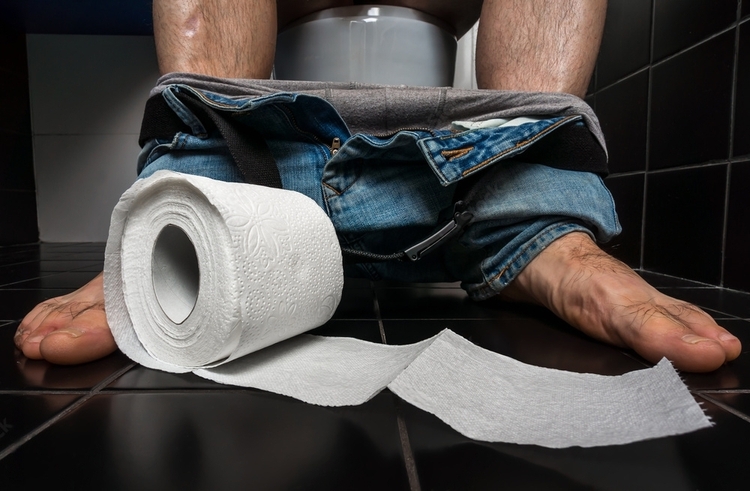Table of Contents
In the realm of personal hygiene, bidets have been making a splash, gaining popularity worldwide. These bathroom fixtures provide a gentle and effective way to clean up after using the toilet. Beyond just cleanliness, bidets offer several health benefits that might surprise you. Let’s delve into the world of bidets, exploring their historical roots, environmental impact, and how they contribute to our overall well-being.

I. Introduction
Bidets, often misunderstood or overlooked, have been a fixture in bathrooms for centuries. Today, as awareness grows, more people are embracing the bidet as an eco-friendly and health-conscious alternative to traditional toilet paper. In this article, we’ll explore the fascinating journey of bidets, from their historical origins to their modern resurgence, focusing on the health benefits that come with this innovative bathroom fixture.
II. Historical Perspective
Origins and Evolution
The story of bidets dates back to 17th-century France, where they were initially created for the French royal family. Over time, bidets evolved and spread across Europe, adapting to different cultures and preferences. Today, bidets have become a staple in bathrooms worldwide, each culture adding its unique touch to this essential fixture.
Cultural Variations
Cultural attitudes toward bidets vary widely. While some countries fully embrace bidets as part of daily life, others may view them with curiosity or hesitation. Understanding these cultural nuances helps us appreciate the global diversity in hygiene practices and sheds light on the bidet’s evolving role in modern society.
III. Bidets vs. Toilet Paper
Environmental Impact
Comparison of Water Usage
One of the key debates between bidets and toilet paper revolves around water consumption. Surprisingly, bidets come out on top in terms of water efficiency. A single use of toilet paper requires gallons of water in its production, contributing to environmental strain. Bidets, on the other hand, use a fraction of that water for a more hygienic clean.
Paper Production and Deforestation
The environmental toll of producing toilet paper is often underestimated. Massive amounts of trees are cut down to meet the global demand for this disposable product. Bidets offer a sustainable alternative, significantly reducing the need for paper and helping to preserve our forests.
Hygiene Considerations
Reduction of Bacteria and Germs
Bidets play a crucial role in maintaining personal hygiene. They offer a thorough cleansing that toilet paper alone can’t achieve. By reducing the presence of bacteria and germs, bidets contribute to a healthier and cleaner bathroom experience.
Prevention of Skin Irritation and Hemorrhoids
Traditional toilet paper can be abrasive and may lead to skin irritation or even hemorrhoids. Bidets provide a gentle and soothing cleansing, minimizing the risk of these uncomfortable conditions. Making the switch to bidets can be a game-changer for those prone to skin sensitivity.

IV. Promoting Digestive Health
Gentle Cleansing and Prevention of Anal Fissures
Bidets are particularly beneficial in preventing anal fissures. Their gentle water stream ensures a thorough yet delicate cleaning, reducing the risk of irritation and fissures that can result from harsh toilet paper use.
Impact on Constipation and Bowel Regularity
For those struggling with constipation, bidets offer relief. The gentle water flow stimulates bowel movements and promotes regularity. This natural and non-intrusive approach to digestive health is a welcome benefit for many.
Bidets and the Promotion of a Healthy Gut Microbiome
Maintaining a healthy gut microbiome is essential for overall well-being. Bidets, by avoiding the abrasive nature of toilet paper, contribute to a healthier environment in the anal area, fostering a balance of good bacteria and reducing the likelihood of infections.
V. Urinary Health Benefits
Reduction of Urinary Tract Infections (UTIs)
Bidets can be a game-changer for urinary health, especially for women. The gentle cleansing they provide reduces the risk of urinary tract infections, offering a preventative measure against a common and uncomfortable issue.
Prevention of Genital Irritation and Discomfort
Traditional toilet paper may cause genital irritation, especially for those with sensitive skin. Bidets offer a gentle alternative, ensuring a clean and comfortable experience without the risk of irritation or discomfort.
Impact on Overall Urogenital Health
The benefits of bidets extend beyond cleanliness, positively impacting overall urogenital health. By minimizing the risk of infections and irritations, bidets contribute to a more comfortable and health-conscious bathroom routine.
VI. Bidets for Special Health Conditions
Benefits for Individuals with Mobility Issues
For individuals with mobility challenges, bidets provide an accessible and dignified solution. The ease of use and efficient cleansing make bidets a practical choice, enhancing independence and promoting personal hygiene.
Considerations for Pregnant Women and Postpartum Care
Bidets offer relief and comfort for pregnant women and those in the postpartum period. The gentle cleansing can soothe sensitive areas, providing a hygienic and comforting solution during these critical times.
Bidets in the Context of Certain Medical Conditions
For individuals with medical conditions such as inflammatory bowel disease, bidets offer a gentler alternative to toilet paper. Their efficient cleansing helps mitigate discomfort, making the bathroom experience more manageable for those with specific health challenges.
VII. Cultural Perceptions and Adoption
Cultural Attitudes Toward Bidets
Cultural perceptions play a significant role in bidet adoption. While bidets are embraced in some cultures, others may view them with skepticism. Understanding and respecting these cultural attitudes is essential in promoting the global acceptance of bidets.
Overcoming Taboos and Misconceptions
Bidets can be met with hesitancy due to cultural taboos or misconceptions. Addressing these concerns and providing education on the health benefits of bidets can help break down barriers, encouraging more people to consider this hygienic alternative.
Global Trends in Bidet Adoption
As awareness grows, so does bidet adoption. Global trends indicate an increasing acceptance of bidets as people recognize their environmental benefits, cost-effectiveness, and positive impact on personal health. The shift towards bidet usage reflects a broader cultural evolution in bathroom habits.
VIII. Conclusion
In conclusion, bidets offer a myriad of health benefits, from promoting cleanliness and preventing infections to contributing to a healthier environment. As we navigate the evolving landscape of personal hygiene, considering the adoption of bidets is not just a choice for comfort but a step towards a more sustainable and health-conscious lifestyle. By understanding the historical context, environmental impact, and cultural perceptions, we can make informed choices that benefit both ourselves and the planet.
